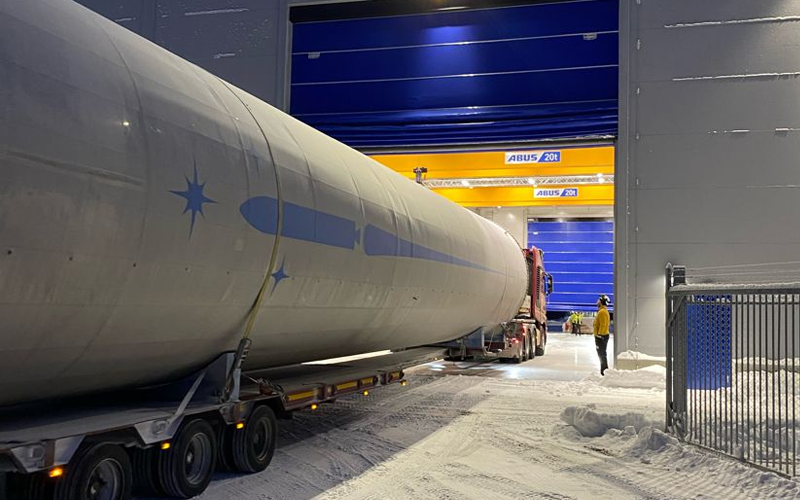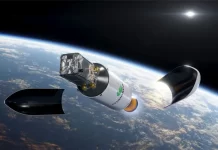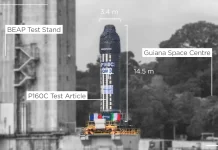
The initial hop tests of the ArianeGroup-developed, ESA-funded Themis reusable booster demonstrator have slipped once again. The first is now expected no earlier than 2025.
In a May 2024 presentation given at the International Civil Aviation Organization offices in Paris, the Swedish Space Corporation (SSC) announced that initial Themis hop tests would only begin next year. SSC is in charge of the operation of Esrange Space Centre in Sweden, where these initial tests of an integrated Themis demonstrator will begin. Once ArianeGroup moves onto higher altitude flights, the testing will be moved to the Guiana Space Centre.
The birth of Themis
Themis was first introduced to the public on 31 May 2018 by the head of the CNES launch vehicle directorate Jean-Marc Astorg, during a presentation at the Palais de la Découverte science museum in Paris. The project was primarily created as a way to demonstrate the performance of the Prometheus rocket engine, the development of which began in 2015.
At the time of its introduction in 2018, three proposals for implementing the programme were being considered. The first was aboard a microlauncher’s first stage, the second was an Ariane-type booster configuration, and the final option was the commencement of a full-scale Ariane 6 successor called Ariane Next.
The booster demonstrator ultimately won that race, and in February 2019, with the launch of ArianeWorks (a partnership between ArianeGroup and CNES), development of Themis officially began. Jerome Vila, the man put in charge of ArianeWorks, described Themis in March 2019 as “a low cost and reusable multipurpose rocket stage.”
At the November 2019 ESA ministerial meeting in Seville, member states voted to officially adopt the Themis programme and provide initial funding for its development. This was followed by a €33 million contract being awarded to ArianeGroup for the “Themis Initial Phase.” At the time of this first contract award, the initial hop tests of Themis were projected to take place in 2022.
By late 2021, when initial tests were being conducted on the demonstrator’s propellant tanks, the first hop tests had slipped into 2023. In early 2023, ArianeGroup displayed a Themis booster during the inauguration of the Esrange orbital launch facility in Sweden. Once in the brand-new assembly hall, ArianeGroup draped a banner over the booster, revealing that the hop tests had slipped by another year, with the first expected to take place in 2024. Now, the launch of that first test has been delayed once again.
What’s next for Themis
In April 2023, Arianespace CEO Stéphane Israël explained that Europe would likely have to wait until the 2030s for the introduction of a reusable launch vehicle. As a result, on an institutional level, there appears to be little reason to accelerate the speed at which Themis is being developed. MaiaSpace does, however, have a reason to push its development.
Founded in 2022 as a subsidiary of ArianeGroup, MaiaSpace is developing a partially reusable two-stage rocket called Maia. The company is essentially utilizing the Themis booster for the rocket’s first stage, with the second featuring a vacuum-optimized Prometheus engine. As a result, for MaiaSpace, the continued and rapid development of the Themis programme is essential to ensure it can hit its projected target of an inaugural flight of Maia in 2025.
With the timelines of the development and testing of Maia and Themis now appearing to align more and more, could this be the fate of the Themis programme? Will it be subsumed into the work being done by MaiaSpace?




